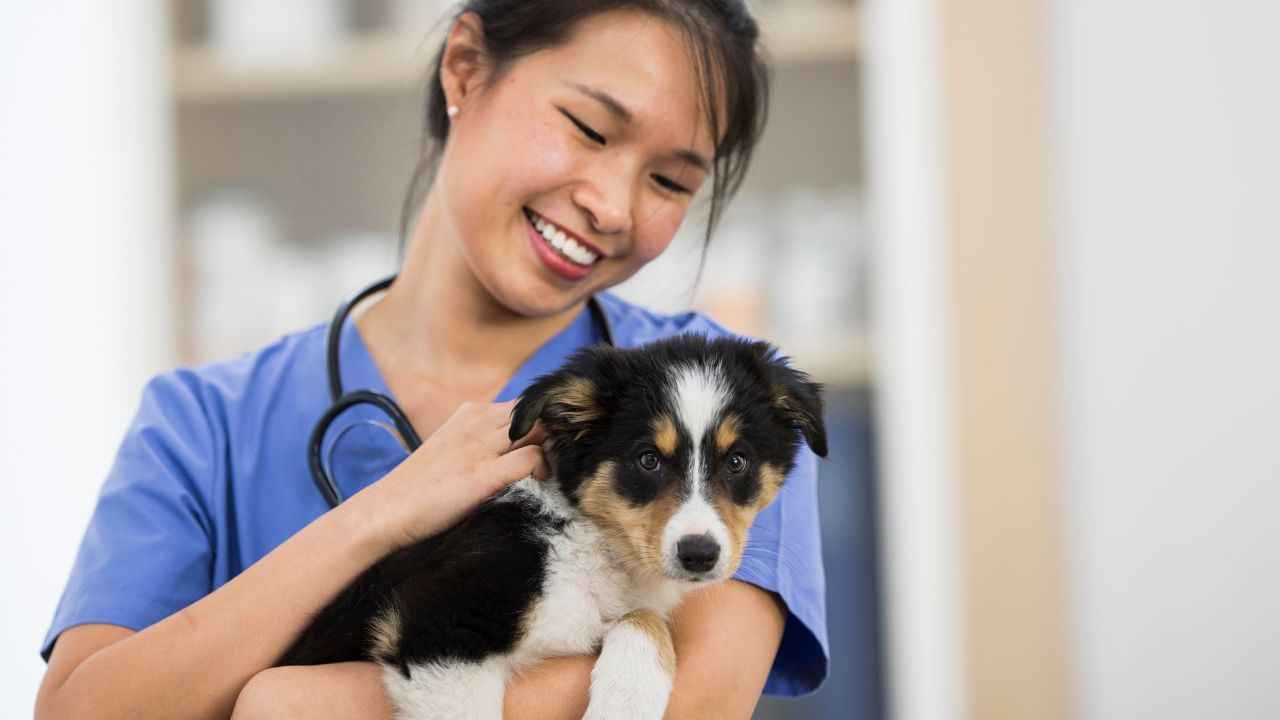How to Care For Your Puppies

Puppies are adorable, but they’re also a lot of work. They must be house-trained, crate-trained, and played with often to burn off energy.
To make it easier to leave your puppy alone for long periods while they undergo training or grooming, practice “leave and come back” sessions.
Training
From a puppy’s point of view, the world is confusing, intimidating, and even scary. They’re confronted with new sights and sounds, people and other dogs they may or may not know, and crazy humans asking them to sit, stay, and not bite. To counteract this confusion and fear, puppies must learn to behave appropriately in various situations.
In addition to crucial crate and potty training, early socialization is critical to help them become well-adjusted, happy dogs. The Spruce Pets recommends starting this process in the first four weeks of a puppy’s life while still with their mother and littermates. They’ll be more open to new experiences now, and poorly socialized puppies often have behavioral problems later in life.
Getting along with other people and dogs is essential to puppies’ health, so they must learn to greet visitors calmly and be polite around other animals. It’s also the best way to prevent separation anxiety, which often manifests as destructive behaviors and constant whining and barking while you’re gone.
Another important lesson is learning to control your puppy’s appetite. Giving puppies scraps from your plate can be tempting, but this will lead to obesity and poor health. Feed your puppy at regular intervals to avoid overfeeding and encourage good behavior.
Health Care

Puppies like Cavapoo puppies for sale are curious creatures and may try to eat things they shouldn’t, which can cause diarrhea. They can also get into things like hand sanitizer, which contains toxic ingredients for puppies. Puppies need regular vaccinations to protect them from diseases like rabies, parvovirus, and distemper. They must be kept from other dogs until they complete their puppy vaccination series.
A healthy, happy dog requires a lot of care. Be sure you’re ready for this responsibility before bringing home a pup.
Each breed has space, exercise, diet, and attention requirements. For example, a German Shepherd/Australian Cattle Dog mix needs a significant daily routine to avoid destructive behavior from boredom. On the other hand, our log-haired Cocker Spaniel has luscious locks that require regular brushing and baths using a specific coat conditioner.
Ask about the mother’s health history and whether she and her puppies have received a veterinarian’s examination and worming treatment since birth. The puppies should be weighed regularly to ensure they gain weight as expected.
Providing high-quality pet food can help keep your puppy’s immune system strong. You can also prevent parasites and diseases by focusing on prevention.
Diet
A well-rounded diet is essential for puppies, who need plenty of protein to grow and healthy fats for a shiny coat. They also need a lot of carbohydrates to energize their brains and bodies. Your veterinarian can help you choose a puppy food that is complete and balanced. Avoid feeding puppies “people food,” which can result in vitamin and mineral imbalances, bone and teeth problems, picky eating habits, and obesity.
Puppies require frequent meals, with three or more small portions daily being a good rule of thumb. Regular feeding helps ensure that puppies get enough nutrition and prevents nipple disease, which can cause the mother to stop producing milk for her litter.
During the first week or two, monitor weight gains carefully to ensure that all puppies are typically gaining sufficient weight and developing. Seeing a puppy not growing as fast as their littermates could indicate an underlying health problem that may need supplementation.
Watch out for any signs of illness, such as diarrhea, vomiting, sneezing, weakness, lethargy, or poor appetite, and contact your vet immediately. Also, watch out for plush toys containing strings, squeakers, and other parts that can get pulled off and become choking hazards for the puppies. And, of course, always provide fresh, clean water.
Exercise
Puppies are full of boundless energy and need physical exercise to burn it off. Regular exercise also helps puppies develop a healthy physique and build their endurance. However, puppies must be given moderate training as their bones and joints are still developing. Too much exercise can lead to joint problems and bone deformities, especially in breeds that are prone to them.
Puppy walks are an excellent way for puppies to get physically and mentally active. This will expose them to new sights, sounds, and smells in a safe environment. Walks should always be done when your pup is fully vaccinated to prevent them from contracting any illness from their surroundings.
Playing with their favorite toys and spending time with their human family members is another form of exercise that puppies need. This will allow them to interact with different people and learn how to handle various situations. Socializing with other dogs will help your puppy develop a well-adjusted personality as they grow up.
Avoid over-exercising your puppy, which can lead to overstimulation and sleep issues. It is also best to avoid exercising your puppy immediately after eating, as this can cause bloat or other digestive problems. If you are still determining how much exercise your puppy needs, speak with your veterinarian and ensure they can help you with an appropriate exercise plan.